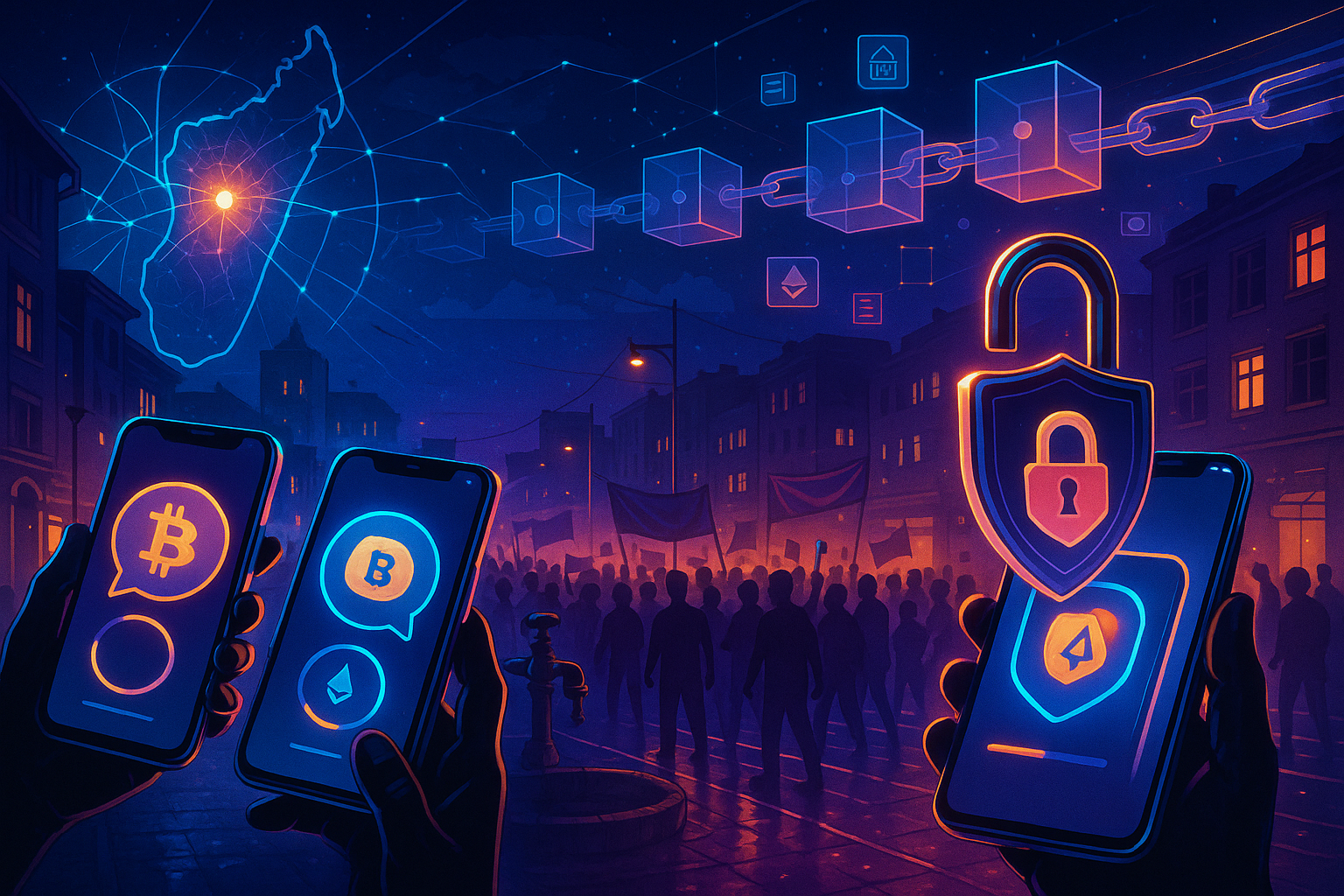Bitchat, Block CEO Jack Dorsey’s decentralized peer-to-peer messaging app, has seen a sharp rise in downloads from Madagascar as nationwide protests over water and power cuts unfolded this week.
The uptick follows similar surges during unrest in Nepal and Indonesia earlier in September, highlighting a recurring pattern of users turning to decentralized communication tools during crises.
A Bitcoin open‑source developer on X, identified as working on the messaging service, flagged the surge and shared screenshots of the protests’ coverage.
Google Trends data shows searches for “Bitchat” jumped from a baseline to peak popularity (0 to 100 over a 90‑day period) on Friday in Madagascar, with particular concentration in the capital, Antananarivo. Related queries such as “Bitchat download” and “how to use Bitchat” ranked among the top five and were labeled breakout topics, indicating a tremendous increase in activity.
Aggregate install metrics from Chrome‑Stats indicate Bitchat has been downloaded 365,307 times since launch, with more than 21,000 installs in the last day and over 71,000 in the past week; those figures do not specify regional breakdowns.
The downloads spike in Madagascar aligns with on‑the‑ground developments: protests erupted in Antananarivo on Thursday, including clashes with police and reports of looting tied to ongoing utility outages.
The unrest led to the dismissal of the energy minister and the imposition of a dusk‑to‑dawn curfew, with demonstrations continuing across the country on Friday and Saturday.
The pattern underscores how decentralized messaging and crypto‑adjacent tools frequently see adoption jumps during episodes of political or infrastructure instability.
For the broader crypto and DeFi ecosystem, these events spotlight both demand for resilient, censorship‑resistant communications and the challenges of verifying usage and regional adoption from aggregated install data.





